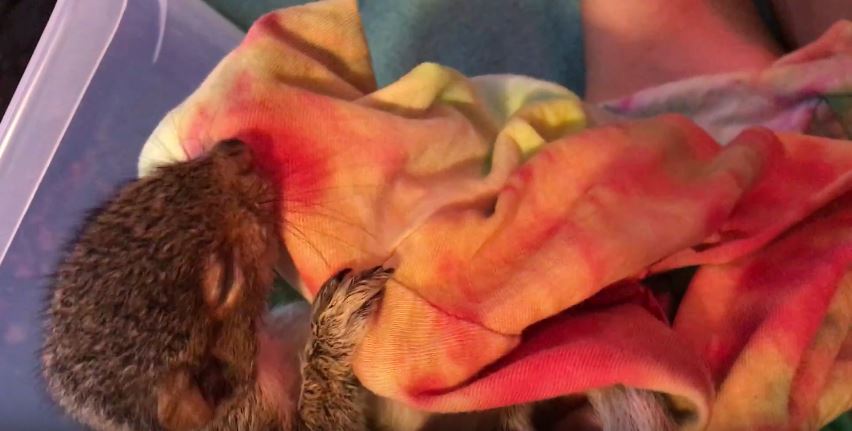What are some of the symptoms of a sick squirrel?

With their fluffy tails and swift mannerisms, squirrels can be quite entertaining animals to watch. They are probably the most loved creature in the rodent family to humans. Squirrels are rather affectionate to humans especially if you have been near to them during their socialization process. If you have any friendly squirrels near your home that you feed and be around often, it is always good to know about symptoms of a sick squirrel and how to take care of it. These instructions are not mean to be for long term care of a squirrel, but rather helping a wild squirrel who has gotten into some temporary trouble.
Potential diseases and Symptoms of a Sick Squirrel
There are several diseases that a squirrel can get which can be life threatening to the little fellow. Let us go through them in detail.
- Dehydration
With their small bodies, dehydration can easily get fatal for squirrels. Water is essential for their digestion matters in particular. If you see a squirrel being unresponsive, the first symptom you should look for is whether their nose or the mouth seems wet and moist. Slightly stretch a little portion of the skin on their back and observe whether it comes back to normal quickly. If it is taking time, it means the squirrel is severely dehydrated and inneeds of quick attention.
To treat this, put a small amount of sugar or salt to a generous amount of filtered water (about half a liter) and wet their mouths with the use of a wet cotton bud or a pipette until they return back to normal.
- Diarrhea / Passing of blood
Squirrels have sensitive digestive systems which can often get affected by diarrhea or passing of blood. In such a situation, antibiotics should be given immediately. Take the sick squirrel to a vet as soon as possible. Make sure that you treat it well and give it the antibiotics exactly in the time they were instructed to be given during the recommended duration.
- Flesh Injuries
As rodents, squirrels have many predators who are hunting them for food. They are in a constant struggle for life. During these predator encounters, if they successfully get away, they can still be left with flesh wounds and broken bones. This kind of symptoms immediately needs the help of a vet. Do not attempt giving medications or bandaging the wounds since you can further damage their sensitive muscles and bones. Those injuries will be cleared with a solution such as saline and treated carefully. Take good care of the squirrel until the flesh wounds are visiblycured.
- Shock
Another phenomenon that can be occurred to squirrels by predator encounters is falling into a state of shock. If you have recently rescued a squirrel from a predator encounter and you see them being less mobile with no appetite, the chances are that they are in a state of shock. Before you get them medical attention, make sure you create a dark and safe space for them to be in silence. Do not add to the shock.
Read the How to get rid of squirrels page for helpful information and to learn more about What are some of the symptoms of a sick squirrel?

